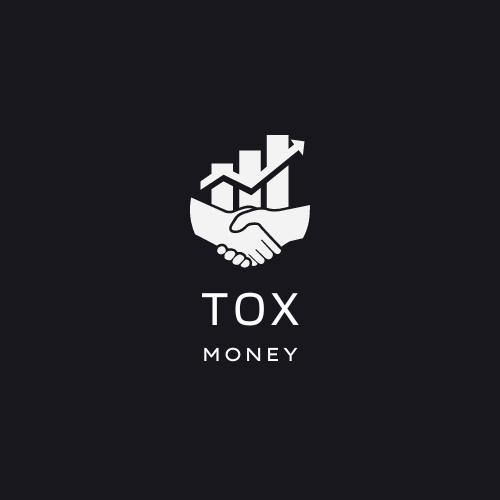Investing may be frightening, especially when you’re first starting started. During times of uncertainty, you may look for safer investments, and there are some lower-risk solutions to explore.
Remember that each investment has different risks and advantages. Furthermore, more financially lucrative investments may be associated with increased risk. You may be aware that riskier investments can provide larger profits.
On the other hand, keep in mind that lower-risk investments typically have lower yield returns. However, this does not indicate that your investments cannot be profitable.
We’ll go over some typical investments to consider below.
1. High-yield savings accounts.
High-yield savings accounts are identical to regular savings accounts, but feature greater APRs than normal accounts. These accounts can be used for long-term savings or to store excess funds from your checking account.
For example, if you want to start saving for a house or create an emergency fund, this may be an excellent alternative.
Flexibility
These accounts are rather versatile. Because they are savings accounts, you may only be able to withdraw money up to six times each month.
Cost
Some banks may ask you to make a minimum deposit to start an account.
How does this work?
Because your money is not tied to a contract, these accounts are one of the most flexible investing options, provided you fulfill FDIC insurance standards. You can withdraw money as needed while potentially earning a profit over time owing to compounding interest.
2. Cash Management Accounts
Cash management accounts, also known as sweep accounts, are financial accounts provided by a brokerage business that combine the features of checking accounts and high-yield savings accounts with the option to transfer funds to investments.
Uninvested funds from your cash management account are “swept” into standard accounts at partner banks, so some of your money may be FDIC protected.
For example, suppose you contribute $100 and purchase three shares of an ETF for $33. You would spend $99, leaving $1 in your cash management account.
Flexibility
If you have money in a brokerage account, you may quickly transfer it to an investing account. Most cash management accounts also provide checks and debit cards for convenient access to your assets.
Cost
The initial fee of opening these accounts is determined by the brokerage that keeps the money. Cash management accounts may need a charge to use the service.
This will vary depending on the supplier and the amount of cash you have available.
How does this work?
Depending on where your money is and how much you’ve put, it might be FDIC guaranteed. Depending on your account, you might be able to cash out immediately.
3. Certificate of Deposit.
A certificate of deposit (or CD) is a predetermined sum of money that you commit to savings for a certain period of time. In exchange, banks will offer you interest if you utilize your money elsewhere during that period.
This sort of investment allows you to pick the time period for which you wish to invest, and interest rates are often determined by market conditions such as the Federal Reserve’s federal funds rate.
Flexibility
Because most banks intend to store your money for a set period of time, withdrawing it sooner than planned is rarely profitable. You may be charged varying fees based on your bank’s policies.
You can donate any amount to a CD, however there may be a minimum requirement. There is normally no fee connected with opening a CD.
Remember that most CDs renew automatically unless you tell the bank or credit union not to. If you wish to spend your funds for something else, consult with your bank before your contract expires.
How does this work?
CDs acquired from an FDIC-insured bank are guaranteed for up to $250,000. Keep in mind that this applies to all accounts in your name at a certain bank, so if your overall account balances at that institution exceed 0,000, you may want to consider shifting some of that money elsewhere.
4. Treasury Securities
The US Treasury Department issues debt obligations in the form of Treasury bills, notes, and bonds. This income may be free from state and local taxes (but not federal ones).
Flexibility
The flexibility of treasury marketable securities relies on their nature.
Treasury Bills – These securities have terms ranging from four to 52 weeks. You can purchase them at face value or at a discount, but you will be paid face value when they mature.
Treasury notes mature for two, three, five, seven, and ten years, with interest paid every six months.
Treasury Bonds – These are available in 20-year and 30-year periods and pay interest once every six months.
Cost
Each of these three types of Treasury securities can be purchased in amounts ranging from $100 to $10 million, with $100 increments.
How does this work?
You can purchase Treasury marketable securities through a TreasuryDirect account or a broker.
Keep in mind that TreasuryDirect only accepts non-competitive bids, whereas brokers accept both competitive and non-competitive offers.
5. Money Market Funds
Money market funds are a form of mutual fund that is offered to both retail and commercial investors. These funds, unlike money market accounts, are not guaranteed by the FDIC.
Flexibility
You can cash out these assets, but it usually comes with a penalty. You may be required to pay liquidation costs and wait a set length of time before receiving your winnings.
Cost
Money market funds often do not require large initial commitments. However, they are regarded extremely low risk and may not be the greatest option if you want to maximize your investment returns.
How does this work?
Money market funds are short-term investments that hold your money in reasonably secure accounts such as CDs and Treasury securities. Consider these funds a strategy to diversify your low-risk portfolio.
6. Preferred Stock
Investing in preferred stocks entails receiving certain advantages over regular stock owners.
For example, you might…
Receive dividends before common shareholders.
Be prioritized above regular investors if the firm goes bankrupt and has to liquidate assets.
Have priority to invest in future investment rounds.
Possess voting or approval rights over corporate directors or key transactions.
Flexibility
You can sell preferred stock in the same way as you would common stock, although the price may have decreased or increased since you acquired the shares.
Preferred stocks, like bonds, give a fixed rate of income. Some preferred stocks additionally have a conversion option. This is when a firm buys back your preferred shares or converts it into ordinary stock.
Before purchasing any preferred shares, carefully review the facts and, if required, consult a financial consultant.
Preferred stock typically costs more than regular stock for the same corporation.
In addition, whether you purchase or sell stocks, you will most certainly incur transaction costs.
7. Fixed Annuities
An annuity is a form of insurance contract that promises a fixed amount of income to the buyer over a specific time period. Annuities are classified into several categories, each with its own structure and price.
Although there are other forms of annuities, the most popular is the fixed annuity. With these, you pay into the fund over time, and in exchange, they eventually produce a consistent income stream, either over a set term or indefinitely.
Flexibility
Each annuity product is constructed differently. Before making a purchase, it is recommended that you thoroughly check the contract and specifics with a competent expert.
Because there are so many different types of annuities, some are better suited to certain persons than others. In addition to fixed annuities, there are instant annuities, which allow you to offer an insurance firm a lump amount in exchange for prompt payments.
Remember that variable annuities sometimes have hefty surrender penalties that apply if you withdraw funds within a particular time frame after creating the account. These normally endure six to eight years, but can persist as long as ten years.
Cost
Keep in mind that if you terminate your contract, you may be subject to a variety of costs in addition to taxes, as well as missing out on interest payments.
8. Dividend stocks
Dividends are payments made by corporations to shareholders out of a portion of their profits. Companies that pay out regular stock dividends may be attractive investments for those who are willing to take on some risk while still searching for a somewhat constant return.
Many investors buy dividend-paying stocks to produce a consistent income. Because of the dividend payments, stock prices may not need to rise in order for the investor to profit.
9. Stable value fund
Stable value funds may be a useful low-risk investing choice for persons who want to accumulate money over time. Stable value funds can provide investors a consistent return while avoiding the volatility of higher-risk investments.
These funds are often a combination of bonds and other fixed-income investments that provide better returns than money market funds while avoiding the significant volatility of stock market investments.
They’re great for folks who want to accumulate wealth in the long run without taking on major risk. Furthermore, these funds often have contractual guarantees, which safeguard investors against possible losses.
10. Series I bonds.
Series I bonds preserve your buying power by shielding your investments from inflation. They are backed by the full confidence and credit of the United States government, ensuring that your principal and interest are guaranteed. Series I savings bond rates vary with inflation and are fixed twice a year.
The interest rate consists of an inflation-adjusted fixed rate and a variable rate index. The variable rate is calculated using the average 12-month CPI-U (Consumer Price Index for All Urban Consumers).
Series I bonds have a minimum electronic purchase price of $25 and can be redeemed after 12 months, however if you redeem the bonds before five years, you will lose the final three months’ interest.
The minimum purchase price for paper series I bonds is $50.



